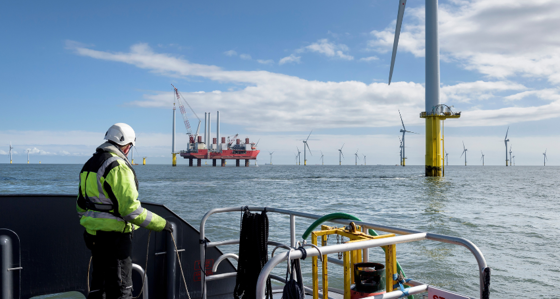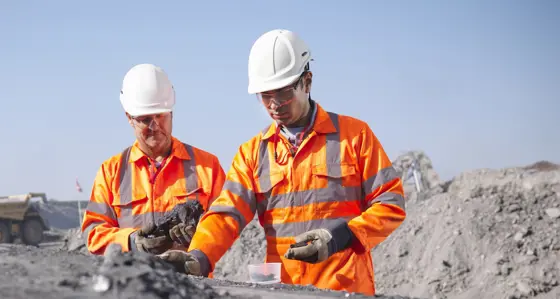
Failure to supply - what's next for the energy suppliers?
16 September 2021
Once again, we find ourselves in a turbulent week for the retail energy sector – 4 suppliers have failed, more may fold before the week is out and more will undoubtedly follow before the year is done.
As if the price cap hadn’t placed enough pressure on the market, we find ourselves in a world where the spiking wholesale price is placing further tension in an already distressed market.
This price spike is a feature that isn’t going to ease significantly any time soon either given supply constraints are being worsened by calm weather impacting wind generation, disruption to key interconnectors via which we import electricity from Europe and gas storage levels being unusually low for this time of year. And even when the price cap increases in October, the underlying electricity wholesale price it assumes (£82/MWh) is significantly short of the forward prices that are currently available in the market (£117/MWh).
This leaves a gap – effectively a loss for every customer a supplier has on a price cap electricity tariff – of a sobering value of over £200 per year if that supplier hasn’t hedged. Electricity and gas wholesale prices are closely linked so a similar trend will be seen on gas tariffs, so the hit for a dual fuel customer will be even greater.
But why wouldn’t a supplier hedge?
Firstly and most fundamentally, suppliers have to have both the money to buy energy in advance, and the capital to secure the ability to trade. In an environment where the price cap has already stripped out much of the margin, many suppliers – especially the smaller ones – simply don’t have the funds. Or maybe they did previously, but prices spiking mean that both elements (the cash to buy and the collateral to trade) are spiking too, taking the ability to hedge beyond the reach of many. Many entered the market without really understanding the capital required to run a supply business, and even as they tried to build more robust balance sheets the price cap eroded their efforts.
And secondly, if you’re going to hedge, it’s pretty pointless unless you do so accurately – knowing how many customers you have plus when and how much they will consume is a tricky calculation that always comes with a margin of error. Even the bigger players, with sophisticated forecasting algorithms and many years of experience, will have some exposure while many of the smaller ones are struggling to accurately measure how many customers they have, no matter how much energy they use day by day. No one is immune.
What does this mean for the sector?
Significant consolidation for sure with many of the smaller suppliers likely to fail, and the risk that some of the bigger brands may also cease trading. That may happen quickly, and in some cases it may be messy - the bigger players, who will now be favoured by Ofgem as winners in the race to acquire Supplier of Last Resort (SOLR) customers given their capacity for change and their deeper pockets, may hit their limit in the number of customers they can manage through a SOLR process at any one time.
There are more profound impacts too – levels of customer trust in the retail energy sector are already low according to the latest Citizens Advice data, not least as cost reduction programmes and COVID have both impacted customer service. These will be eroded further if customers and their metering and payment history is bounced around by old and new suppliers through the SOLR process.
Seeing the bigger picture
And most importantly, in all the drama of the current situation, we risk losing sight of the bigger picture in the need to decarbonise millions of customer homes with the installation of insulation and decarbonisation of home heating. This is the real killer – literally – as the impacts of climate change and the corresponding extreme weather events create increasing levels of global disruption. Pushing this out further, as the current crisis is inevitably doing, is a risk to us all.
So, what to do? In reality, we need a reset. A big one. That the press, politicians and the public all buy into. No one can defend the profits that retailers made in the past, but we need to accept that they’re no longer the bad guys – if we regulate the market well and are given the space to innovate, they provide a valuable key to unlocking our path to net zero in the coming decade.
To understand the impact in more detail or to find out more about our work in the energy retail sector, contact Ellen Fraser.
Related Insights

Trump trade tariffs: Impact on the UK EV uptake
The global automative industry is at a critical juncture, shaped by intersecting forces of electrification, geopolitical trade tensions, and national decarbonisation policy.
Read more
Driving economic growth by securing a cleaner and resilient future for the North Sea
Our report, published in conjunction with Offshore Energies UK (OEUK), outlines how the North Sea can continue to play a pivotal role in the energy system as the world shifts to net zero, while positioning the UK as a resilient, innovative and competitive player in the global energy landscape.
Read more
From early adopters to early majority: Driving the next phase of EV growth
As EVs are moving beyond the early adopter phase, what are the principles needed for mass market adoption and progressing towards net zero targets?
Read more
Crossing the industry divide to drive decarbonisation across Asia-Pacific
Resources organisations are identifying opportunities in the unfamiliar overlap between energy, mining and metals.
Read moreIs digital and AI delivering what your business needs?
Digital and AI can solve your toughest challenges and elevate your business performance. But success isn’t always straightforward. Where can you unlock opportunity? And what does it take to set the foundation for lasting success?